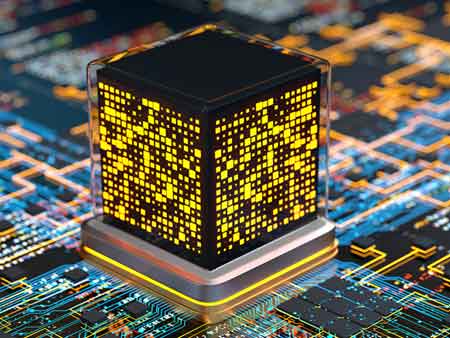 A Quantum Leap Accelerator may be gee-whiz fodder for a reimagined television series. But in Washington State, quantum computing is taking its own quantum leap, thanks to a new factory in Bothell.
A Quantum Leap Accelerator may be gee-whiz fodder for a reimagined television series. But in Washington State, quantum computing is taking its own quantum leap, thanks to a new factory in Bothell.
IonQ, which started with a 65,000-square-foot space in a former AT&T Wireless building, has taken expanded into the third floor. The additional space will allow the company to expand its research and manufacturing into a 100,000-square-foot space.
IonQ considers the Bothell facility to be the first dedicated quantum computer manufacturing facility in the country. In addition to space for R&D and manufacturing space, the facility houses a second quantum data center. The other is at the company’s Maryland headquarters.
The company’s CEO, Peter Chapman, estimated that performing all the needed upgrades cost $20 million. Nearly 100 employees work at the new facility, and IonQ expects to invest $80+ million in the region in the next few years. If everything goes right, that may increase to an investment of a billion dollars over the next 10 years, he says.
Market demand is growing rapidly. The company is assembling a Forte Enterprise computer for a Swiss tech hub and two custom quantum computers for the Air Force Research Laboratory as part of a $25.5 million contract.
In contrast to traditional computing, which still relies on binary (ones and zeros) code to do its processing, quantum computing uses a different system of “qubits” that can represent 1, 0 and 1 and 0 at the same time. As such, it can rapidly solve problems that would leave older computers sputtering for weeks, months or even years to solve.
Quantum computing has the potential to change the way problems are approached and solved, from new drugs to fight and perhaps even cure cancer to new energy sources that are still only theoretical.
While some large companies, such as IBM and Microsoft, are developing systems that use superconducting circuits under their quantum computing hood, IonQ’s computers rely on the quantum properties of trapped ions. Their Forte Enterprise computers use ytterbium ions, but the next generation will use barium ions supplied by Pacific Northwest National Laboratory (PNNL).
IonQ has the advantage of being close to the Bothell Campus of the University of Washington, which is increasing its focus on quantum information science and engineering through a program known as QuantumX. PNNL is also close by. Their satellite research center is in Seattle.